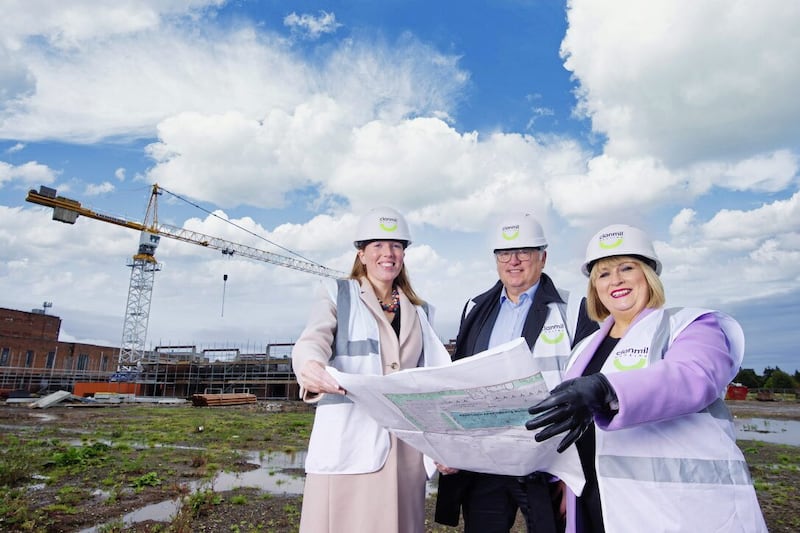LEADERS are recognising being a responsible business is increasingly featuring in the expectations of consumers, employees and investors alike.
ESG (environmental, social, governance) helps address issues such as climate change, resource scarcity and social inequality that impact a business’s ability to function effectively. ESG is moving to the heart of business strategy and purpose and it’s a way to embed positive impact and sustainability into the actions of your business.
But what if your business is in a sector which already exists “for social good” – like health and social care? A new report from Barclays Corporate Banking has revealed an interesting anomaly, namely that the focus on the E of ESG – environmental sustainability - is lagging in this sector.
While more than a third of the world's biggest publicly-traded companies now have net zero targets (albeit around two thirds do not yet meet minimum standards), the response of health and social care to these imperatives has been muted, at best.
By the nature of their business, healthcare operators are big carbon emitters. Residential care demands round-the-clock heating, lighting and water use; food waste is often an issue too. Hospitals require ventilators, scanners and other powerful equipment. Road transport is generally the only viable mode for domiciliary care providers and here in Northern Ireland, visits by carers to isolated rural dwellers are a vital lifeline.
The Barclays report (Time to Act, Healthcare at a turning point on ESG) reveals that across the UK, private hospitals have largely started to embrace sustainability challenges, but social care operators have yet to do so. Barring some notable exceptions, most providers are either just embarking on their transition to a low carbon economy or have yet to start.
The report suggests that one reason for this may be the sector’s reliance on its undeniably positive social impact. The social value of healthcare is plain in a way that does not apply to many corporates. However, this, in itself, does not exempt the sector from its need to track and demonstrate impact.
ESG enables businesses to go beyond meeting regulatory requirements, towards positioning themselves as the preferred suppliers to their customers. The report states that acting now is an investment in customer trust and commissioner confidence; in the ability to attract the best talent; and in the future valuation and long-term viability of any healthcare business to attract investment.
For investors, ESG gives a more holistic view of a company's performance. Equally, good corporate sustainability performance is associated with good financial results, making responsible businesses a sound investment.
Delaying the implementation of an ESG strategy has been possible to date but will not be an option for much longer. The report states that many investment funds are now prepared to invest only in ESG-compliant assets. For private operators looking towards growth, failing to focus on ESG will likely, in the long term, severely limit access to capital, while reducing asset values.
A recent survey by the real estate consultancy CBRE suggests more than 50 per cent of care operators have no ESG strategy, and no plan to cut carbon emissions. However, those operators who have made an early start in this area are already benefiting through mitigation of soaring energy costs in recent months. Higher energy costs may now accelerate moves to reduce environmental impact, although this could be a juggle, given the overall effects of soaring inflation.
Aspirations aside, the challenges in this sector are real and significant. To urge operators to embrace sustainability is not to underestimate the after-effects of the sector’s recent experiences through the pandemic. Many nursing home businesses are still recovering in terms of occupancy and profitability and face significant challenges around staffing.
This is also a sector in Northern Ireland facing the acute impact of the recruitment crisis. For private health and social care businesses vying to attract younger workers, it could be useful to note that a growing number of 18 to 34 year olds now cite corporate values above salary in their priorities.
On the whole, we believe it’s in the sector’s interests to give ESG a much greater focus sooner rather than later, and they will need support to get there.
While nine in ten small HSC businesses believe it is important for them to be sustainable, 42 per cent say they struggle due to lack of guidance. This is especially true for health and social care, which lacks the independent, sector-specific guidance available to sectors such as retail and hospitality.
Our corporate banking team have access to a growing range of financing for sustainability-linked projects, some of which offer reduced funding costs linked to progress against sustainability goals. While smaller businesses whose borrowing is already high may still find it hard to access these facilities, policymakers are being urged to bring sustainability within easier reach of more firms.
The good news for operators in this sector is that despite the operational challenges they are currently facing, investors see attractive credentials. Here in Northern Ireland, we have a wealth of well-established, progressive private operators of nursing homes, private hospitals and domiciliary care. There is inherently positive social impact of their core work, and tight regulation of governance. A nudge towards meeting environmental sustainability could make local businesses in this sector highly investible.
Barclays report offers inspiration for others on the journey towards sustainability, including a focus on several operators who are already making big strides on the ESG agenda. It is available at: https://www.barclayscorporate.com/insights/industry-expertise/esg-and-healthcare/
:: Louise Tiffney is relationship director at Barclays Corporate Banking Northern Ireland









